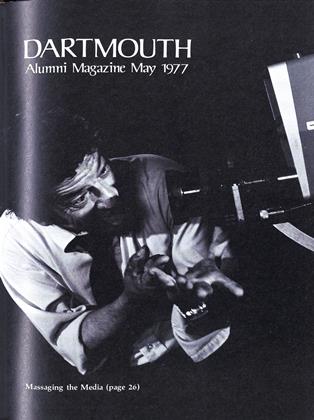Following in the path of two other Dartmouth alumni, Robert Collins (Americans in Africa, 1865-1900) and George R. Brooks (Yankee Traders, Old Coasters and African Middlemen), Alan Booth has also investigated an aspect of United States involvement in Africa - in this case, the early years of American commercial and missionary activity in South Africa.
Given the overwhelmingly influential role which Great Britain has played in South Africa since the end of the 18th century, the length and importance of the American connection in this area has generally been overlooked. Despite the length, tedium, and frequent danger involved in the sea voyage from North America to the Cape of Good Hope - its one-way duration in the age of sail averaged between'llo and 120 days - Yankee traders exchanged silver coinage, furniture, flour, tobacco, cloth, oars, hoops and staves from New Hampshire sawmills, as well as New England livestock for South African hides, wines, and wool. By the end of the American Civil War, the United States was second only to Britain in volume of exports and imports to and from South Africa. In the ensuing decades, moreover, American machine and engineering skills made crucial contributions to the extraction of South Africa's newfound wealth in diamonds and gold, setting the pattern for the exchange of technological expertise for minerals and raw materials which is fundamental to United States-South African relations to this very day.
The first missionaries landed at Cape Town in 1835, sent to South Africa by the American Board of Commissioners for Foreign Missions. Initially, the board had sought black missionaries for this field, theorizing that these would be more acceptable to the "natives" and better suited for the African climate. Unable to find blacks who met their requirements, however, the commissioners recruited whites from the northern tier of the American southern states - a region "not known for its doctrinal liberalism," as Professor Booth accurately observes, but also one in which the supply of potential proselytizers was great.
It is Booth's thesis that both United States' commercial and missionary involvement in South Africa was motivated by a conversionist impulse which derived its principles from the American Revolution and the American Enlightenment: by the belief that its citizens were entrusted with the sacred mission to carry the American Model, in the name of God, across the seas. Accordingly, "America, with neither colonial establishments nor imperial ambitions, sought to recast the world in its own image solely by exporting its products, its civil institutions, and its spiritual values." Despite his thorough scholarship, however, Booth's argument is hardly sustained by his narrative. He tells us little about the social and intellectual contact between Yankee traders and the African, Boer, and British inhabitants of South Africa and, consequently, draws no clear link between the ideas of the American Enlightenment and the actions of American individuals on the spot. Indeed, he admits that "profit had been the main motive" for American commercial interest in the area and that "fifty years of trade with South Africa . . . proved that goods are not necessarily accompanied by ideas." In the case of the missionaries, he does not distinguish clearly between the attitudes and ideas of the American proselytizers and those of their European counterparts. If anything, the first American missionaries in South Africa seem to have been less inspired by the "humanism, rationalism, and physiocratic exchange" that characterized the American Enlightenment - and that might have set them apart somewhat from other evangelists - than by ideas of racial prejudice and cultural superiority toward black Africans which were held almost universally by whites present in South Africa at the time.
UNITED STA TES EXPERIENCEIN SOUTH AFRICA, 1784-1870By Alan R. Booth '56Balkema, Rotterdam, 1976236 pp. $17.80
Professor Spitzer of the Dartmouth historydepartment is a specialist in African history.
 View Full Issue
View Full Issue
More From This Issue
-
 Feature
FeatureWomen at the Top (almost)
May 1977 By SHELBY GRANTHAM -
 Feature
FeatureOISER: Massaging the Media
May 1977 By PIERRE KIRCH -
 Feature
FeatureNatural Energy Resource
May 1977 -
 Feature
FeatureGold-Medal Equestrian
May 1977 By M.B.R. -
 Article
ArticleWar
May 1977 By JACK DEGANGE -
 Article
ArticlePaddler, Climber, 4-term Planner
May 1977 By D.M.N.
LEO SPITZER
Books
-
 Books
BooksPUBLICATIONS
August 1917 -
 Books
Books"The Loco-Weed Disease,"
NOVEMBER 1929 -
 Books
BooksGROWTH HORMONES IN PLANTS
November 1936 By Charles J. Lyon -
 Books
BooksAMERICAN SCHOOLS, A CRITICAL STUDY OF OUR SCHOOL SYSTEM,
October 1943 By Louis P. Benezet '99 -
 Books
BooksHow Much Freedom?
JUNE/JULY 1984 By Peter Smith -
 Books
BooksE. E. CUMMINGS.
JULY 1964 By THOMAS VANCE





